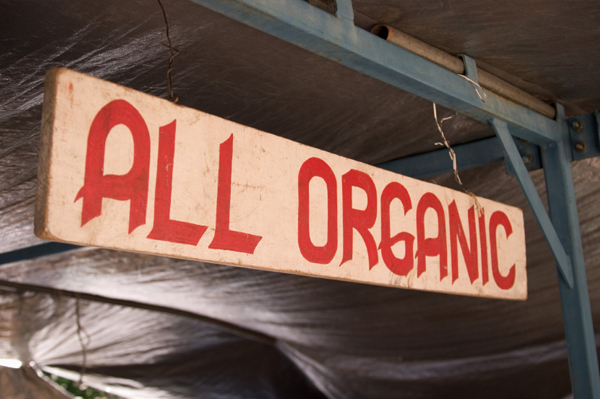- Have you gone organic?
Humane treatment of animals
Organic farming seeks to encourage an abundance of species to live in balanced, harmonious ecosystems. A much greater diversity of birds, butterflies and plants thrive on organic farms than on their conventional counterparts.
a healthy choice for the planet
When you choose organic, you are supporting a farming system that keeps toxic and persistent pesticides and synthetic fertilizers out of our water, soil and air. Many EPA-approved pesticides were registered long before extensive research linked these types of chemicals to cancer and other diseases. Organic agriculture is one way to prevent them from getting into the environment.
reduced dependence on non-renewable resources
Instead of using petrochemical-based fertilizers, organic farmers use recycled products from other industries that would otherwise go to waste.
healthy soils
Organic farming builds naturally fertile soil and prevents soil erosion. Organic farmers continually add organic matter to the soil, a practice that results in less water usage and soil erosion, and sustainable, fertile soil.
reduced chemical and toxin use
In conventional farming, more and more chemicals are needed as pests become more resistant to chemical pesticides and as soil structure deteriorates, making conventional farming's long-term viability questionable. Organic farming works without producing pesticide-resistant insects and preserves beneficial insect populations.
High quality standards
Organic certification is the public's assurance that products have been grown and handled according to strict procedures. You can be certain that the foods you eat have been grown without the use of chemicals -- no more questioning the ethics of the farmer who raised the produce on your plate.
a safer workplace for farm workers
Eliminating exposure to toxic pesticides creates a healthier environment for people who work in the fields -- and their families, too.
higher nutrition
Organic produce contains more vitamins, nutrients and cancer-fighting antioxidants than non-organic food. It makes common sense: Well-balanced soils produce strong, healthy plants that become nourishing food.
superior taste
Many top chefs are cooking with organic fruits and vegetables primarily because of their fresh, clean taste and excellent quality. The richness of the natural flavors reflects the pure nutrients of the soil.
Protection of future generations
Eating organic foods reduces unborn babies' exposure to pollutants during prenatal development. Likewise, organic farming protects the environment they will inherit by using less water and eliminating pesticides and airborne toxicity.
When it comes to growing and processing organic food and products, less means more for both you and the environment.



No comments:
Post a Comment